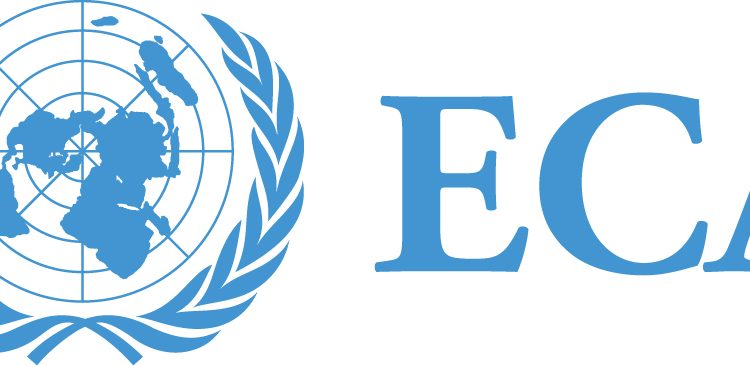President Museveni stresses value addition, expanding markets and better infrastructure for Africa’s sustainable future
President Yoweri Kaguta Museveni has urged African leaders to dismantle the continent’s bottlenecks to socio-economic transformation. In his opening address at the 8th African Leadership Forum, the President cited Uganda’s approach to sustainable development and stressed the importance of enhancing local value addition, expanding regional markets and improving infrastructure.
The 8th African Leadership Forum (ALF) is co-convened by the former President of Tanzania and ALF Patron, Jakaya Kikwete, and former Prime Minister of Ethiopia, Hailemariam Desalegn to mobilize action on pressing developmental challenges. Held on the margins of the Eleventh African Regional Forum on Sustainable Forum (ARFSD-11), this year’s theme, “Realizing Sustainable Development Goals in Africa: Progress and Way Forward,” underscores the urgent need to accelerate progress toward the United Nations’ 2030 Agenda and the African Union’s Agenda 2063.
President Museveni used the example of Uganda’s coffee exports, noting that while raw coffee fetches around $2.5 per kilogram, processed coffee can earn up to $40. “Africa donates over $20 to the world for every kilogram,” he stated, warning that reliance on exporting raw materials deprives the continent of wealth and job creation. In the same vein, he warned against the export of minerals such as iron ore, recalling a proposal to sell it to India for a mere $47 per tonne. “Why export raw iron ore? Let it stay in the ground until we’re ready to add value here,” he emphasized.
On regional markets, he noted that Uganda produces 5.3 billion litres of milk annually, but Ugandans only consume 200 million litres. “We need bigger markets,” he said. He also called for improved infrastructure and affordable transport systems such as rail and water waters that the region has plenty of.
Highlighting the importance of human capital, Museveni pointed out that a country cannot transform if its population remains uneducated, unhealthy, and unskilled.
The President cited initiatives such as Entandikwa and Operation Wealth Creation as key to moving Ugandans from subsistence to commercial production.
Former Tanzanian President Jakaya Kikwete reaffirmed the forum’s role in fostering regional cooperation and sustainable growth through committed leadership, urging leaders to focus on proactive solutions for the continent’s development challenges.
For his part, Mr. Antonio Pedro, Deputy Executive Secretary of the Economic Commission for Africa, articulated the continent’s challenges and the path forward toward sustainable and inclusive growth.
Mr. Pedro highlighted the pressing issue of youth unemployment in Africa, where an estimated 10 to 12 million young people enter the workforce each year, yet only about 3 million formal jobs are created. This alarming trend, he said, leaves over 76 million young Africans neither employed nor in education or training, reflecting a systemic failure that demands immediate attention.
“Unemployment is not just an economic issue; it threatens peace, social cohesion, and the legitimacy of our development model,” warned Pedro. He stressed the importance of prioritizing job creation within policy agendas to foster inclusive prosperity and political stability. “Without jobs, hope fades. Without hope, stability weakens. And without stability, development becomes impossible.”
To realize this vision, the Deputy Executive Secretary called for leadership across all sectors: Governments must champion policies that enhance access to education, infrastructure, and clean energy, particularly for marginalized communities; private sector must invest in purposeful initiatives and said civil society must hold all actors accountable for measurable progress.
Mr. Pedro underscored the necessity of a new social compact—one that places women and youth at the forefront of labour markets and policy design. “Empowering them is not charity; it is a necessity,” he stated.
In his address, Pedro reiterated the need for structural transformation in Africa, moving away from reliance on raw commodity exports towards value addition and regional integration. He lauded initiatives such as the transboundary Special Economic Zone for electric vehicle batteries between the Democratic Republic of the Congo and Zambia, which exemplifies Africa’s capacity to leverage its mineral wealth for regional industrialization.
He cited ECA’s analysis on reducing tariffs and non-tariff barriers that could boost intra-African trade by 45% by 2045, particularly in agro-processing and industrial goods.
However, he stressed that integration must be operationalized through investments in transport corridors and the ratification of pending AfCFTA protocols. “Transformation depends on people,” he noted, calling attention to the disconnect between education systems and labor market realities.
Pedro also advocated for realigning education and training to meet current and future market demands, emphasizing the importance of vocational training and public-private partnerships in technology and entrepreneurship.
Emerging technologies, including AI and robotics, present Africa with a unique opportunity to leapfrog outdated development models. “We must embrace these frontiers as urgent priorities,” he urged, highlighting the continent’s potential in the rapidly growing global AI market.
Moreover, he pointed out the untapped potential of the care economy, particularly in health and education services, as a means to create millions of jobs, especially for women. Countries like Rwanda and Ghana are already setting examples with integrated models linking healthcare delivery with entrepreneurship.
Acknowledging external challenges, Pedro addressed the complexities of Environmental, Social, and Governance (ESG) frameworks that may hinder African producers from participating in global markets. He called for a recalibrated ESG model that promotes energy access, food security, and job creation, urging the development of African-led sustainability frameworks.
“At this moment, we are not short of declarations; what we need now is implementation—with urgency and courage,” he concluded.
The ALF was attended by key Ugandan leaders, including Prime Minister Robinah Nabbanja and former Prime Ministers Ruhakana Rugunda and Amama Mbabazi, among others.
Distributed by APO Group on behalf of United Nations Economic Commission for Africa (ECA).



